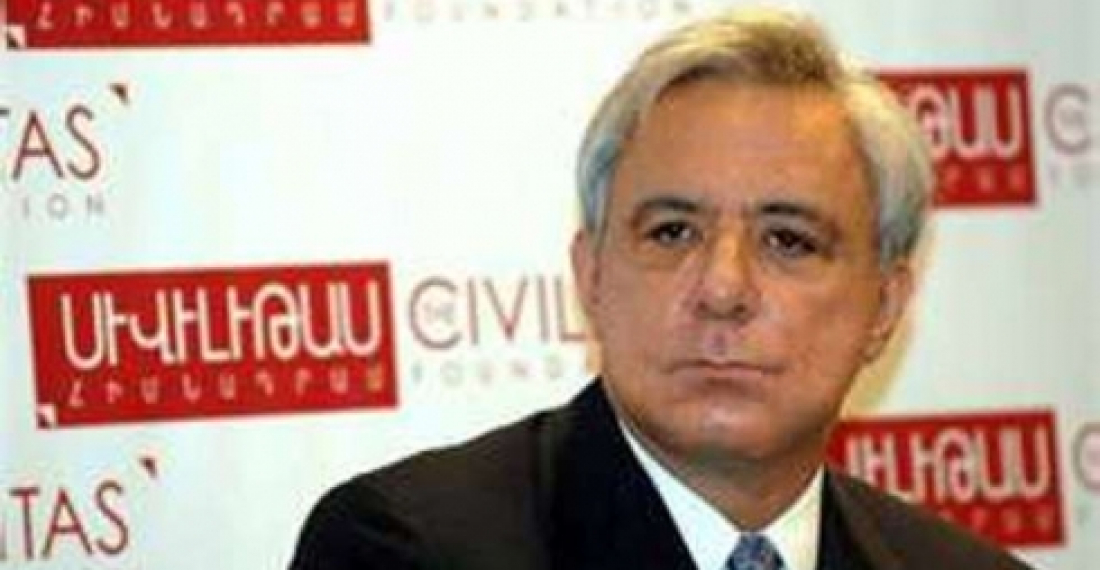Vartan Oskanian, who for ten years served as Armenian Foreign Minister under the presidency of Robert Kocharian, is set to return to Armenian frontline politics after the announcement yesterday that he has joined the Prosperous Armenia Party, the second largest party in the government coalition.
In a statement, Oskanian said “I make this decision convinced that the Prosperous Armenia Party, together with other political parties, is able to, through political competition, secure free and fair elections, and thus, a new National Assembly with a new configuration of political forces. As Chairman of the Board of the Civilitas Foundation, I had, on various occasions, expressed my views on events and developments in Armenia. Today, I believe it is time to become more actively involved in our political processes."
Oskanian is considered to be a heavyweight in diplomatic circles. During his tenure as Armenian Foreign Minister he steered Armenian diplomacy through a number of challenging situations, including negotiations on the resolution of the Nagorno-Karabakh conflict. Since leaving the Ministry of Foreign Affairs in 2008 he has led the Civilitas Foundation but many had considered this to be a temporary situation because his return to frontline politics was always considered likely.
Oskanian was born in Aleppo and studied at the Fletcher School of Law and Diplomacy in the United States. Oskanian moved to Armenia in 1992, shortly after Armenia’s independence, and began work at the foreign ministry, first in the Middle East Department, then as head of the North America Department. In 1994, he became Deputy Minister of Foreign Affairs and in 1996, First Deputy Minister. In 1998, he was appointed Minister of Foreign Affairs by President Robert Kocharyan.
source:commonspace.eu with agencies
picture: Vartan Oskanian (archive photo)







